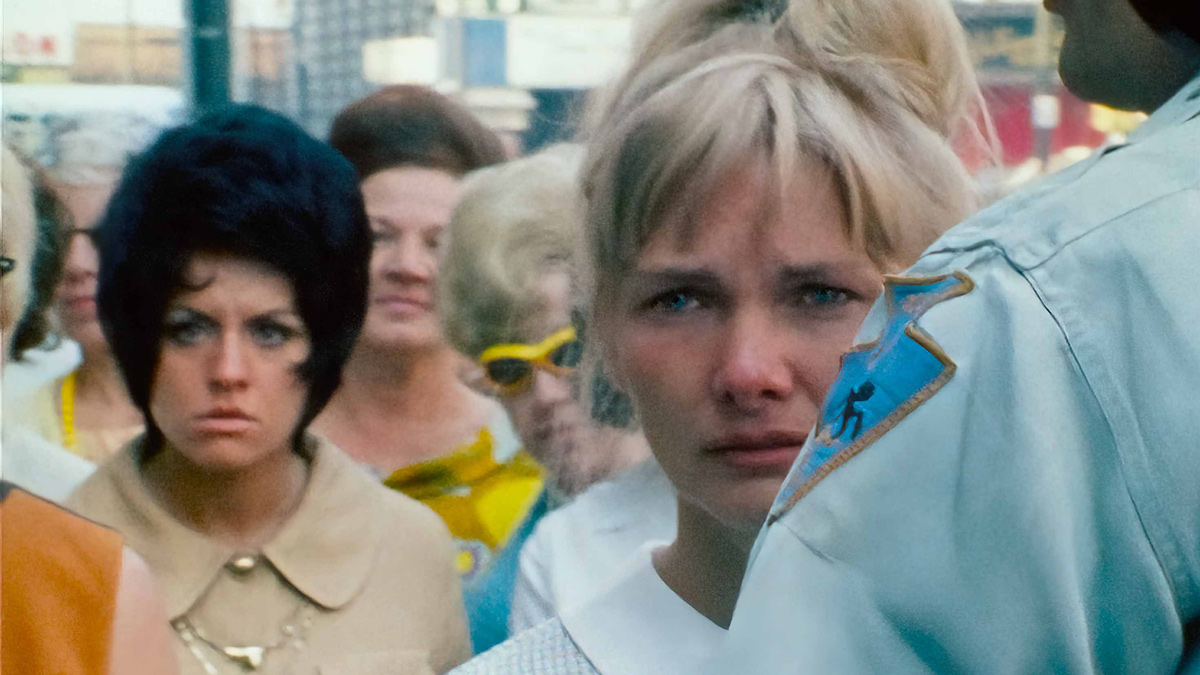
(C)1970 FOUNDATION FOR FILMMAKERS
“Wanda” A heroine who refuses to accept the ending, her never-ending story
2022.07.13
“Wanda” synopsis
Pennsylvania. A coal miner's wife is divorced by her husband, loses her children and job, and loses all her money. After exhausting all her limited Being There, Wanda ends up running away with an arrogant man she met in a dimly lit bar, becoming his accomplice in a crime...
Index
- anti-heroine statue
- Who is Barbara Roden?
- tiffany blue particles
- A movie/heroine who refuses the ending
anti-heroine statue
"She's trapped and can never get out. There are millions of people like her." (Barbara Roden)*1
"I don't care if he wants a divorce." Wanda (Barbara Roden) tells the judge this at the divorce mediation trial. Wanda, dressed in pajamas and with curlers in her hair, rides the bus to the courthouse. Wanda appears smoking a cigarette and is late for the trial. Also in the audience is a new wife whose husband is planning to get married. Wanda easily abandons her husband and child. However, I can't feel any regret or fearlessness towards her.
Barbara Roden avoids making the heroine Wanda charismatic, both in her acting and directing. A rare heroine who seems to disappear from the landscape in front of us at any moment. As the wronged heroine, the ignored heroine, Barbara Roden paradoxically brings Wanda to the forefront of the film.
“Wanda” preview
This film takes an approach that is the exact opposite of the portrait of a rebellious woman that Barbara Roden showed in her husband Elia Kazan's `` The Splendor of the Steppe '' (61). Wanda is not a woman who is rebelling against anything. Rather, they live a passive life, letting themselves be carried away. This is why some feminists criticized this film when it was released. The image of a passive woman who doesn't try to change her life. However, Barbara Roden deliberately takes an approach that portrays Wanda as passive in a male-dominated society. Here, the image of a weak heroine named Wanda itself becomes an ``indictment'' of masculine values. Barbara Rhoden was said to have had a distrust of the fashionable "new image of women" depicted in movies.
"When I was a kid, I hated movies. The people on the screen were perfect and I felt inferior." (Barbara Roden)*2
From the moment the film begins, Wanda is treated as a weak heroine. Barbara Roden takes her time before the audience recognizes Wanda's face. Wanda's surroundings are deliberately depicted as she lies face down on the bed. As if there was no place for her in this family. A small American flag hangs in the room, echoing Barbara Rhoden's theme. Wanda is forced out of the community of home. Her journey begins with no family.
And the extremely long shot of Wanda walking through a coal mine in Pennsylvania, together with the thinness of the heroine who seems to disappear into the landscape, tells us that this is an extraordinary film. ``Wanda'' (1970), which was long forgotten, is now being praised as a pioneering masterpiece by a female actor and filmmaker.

